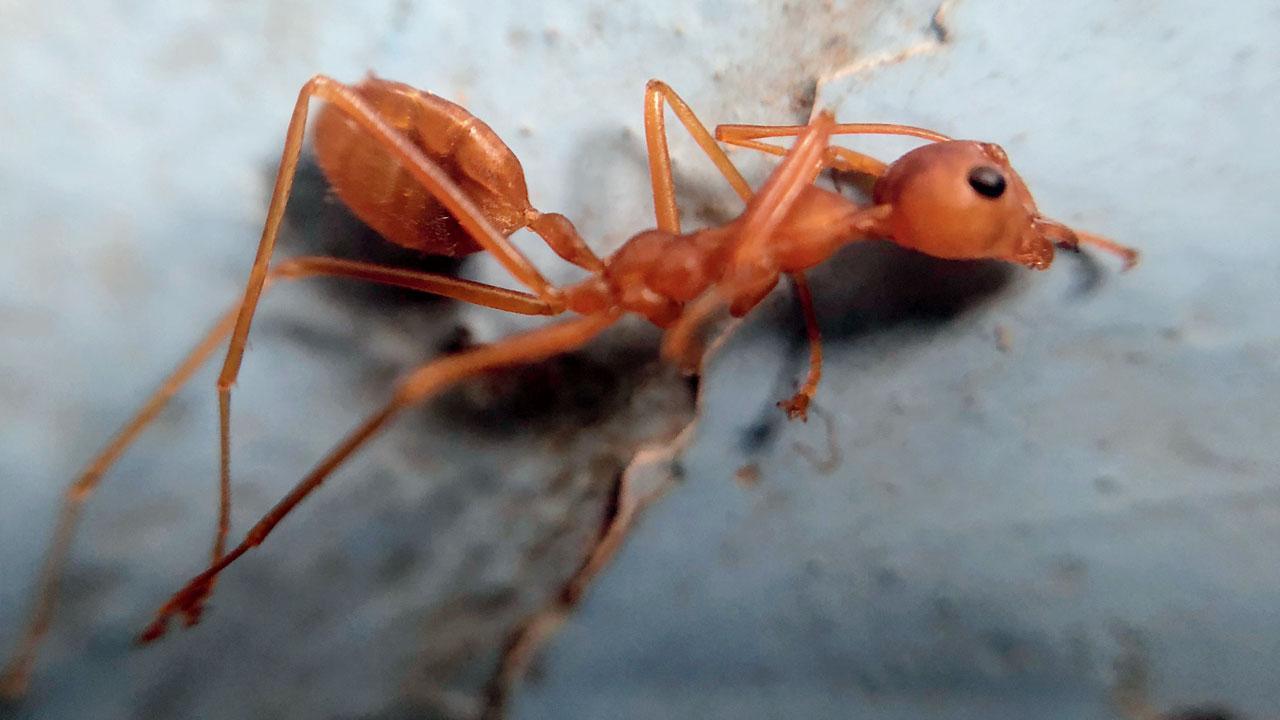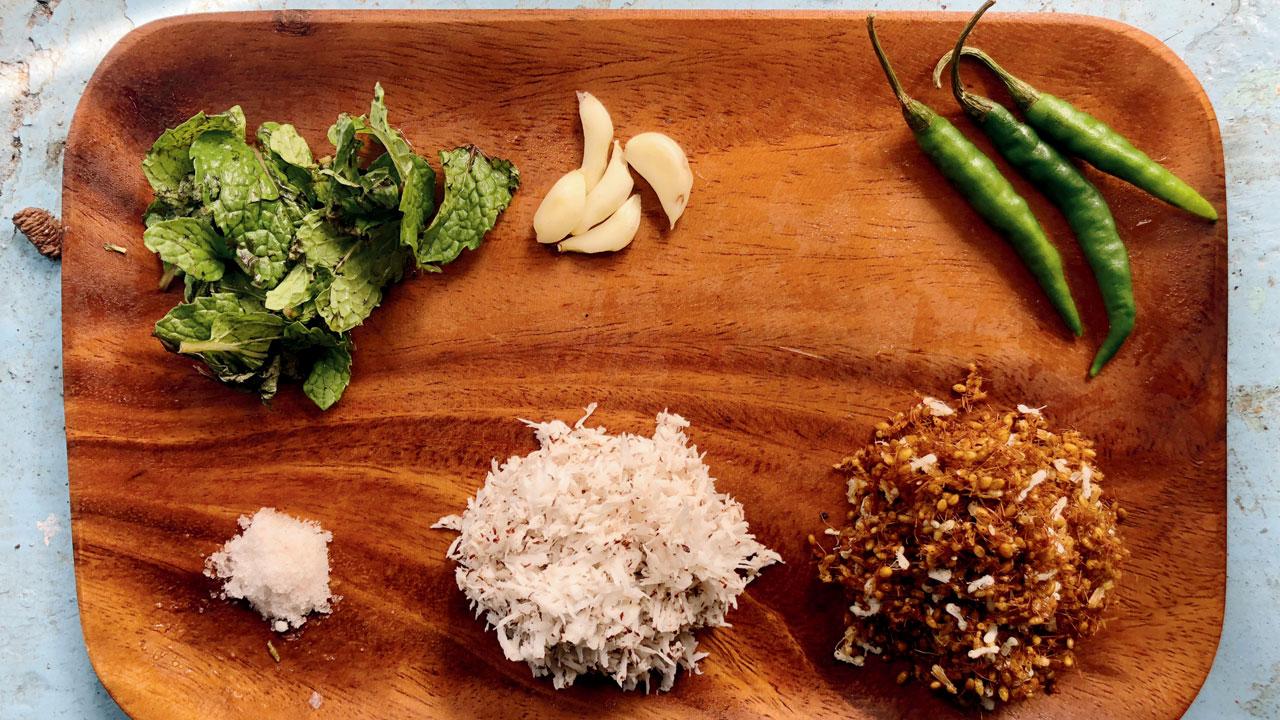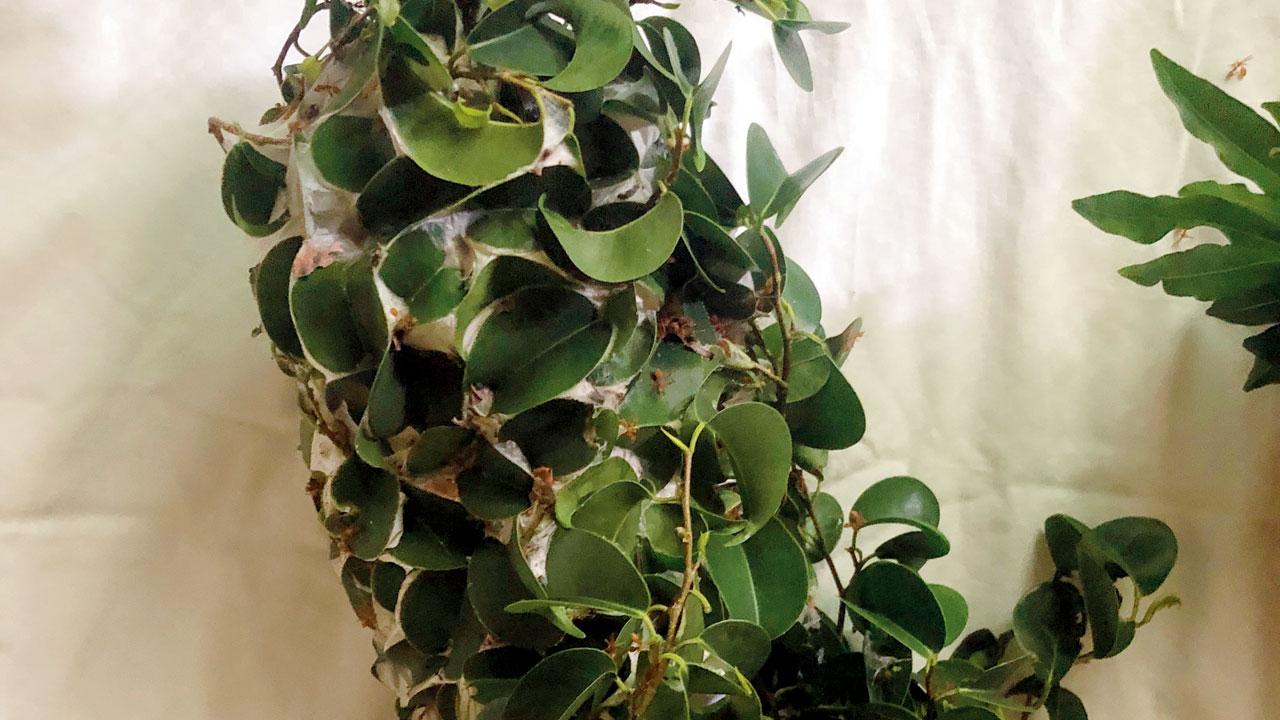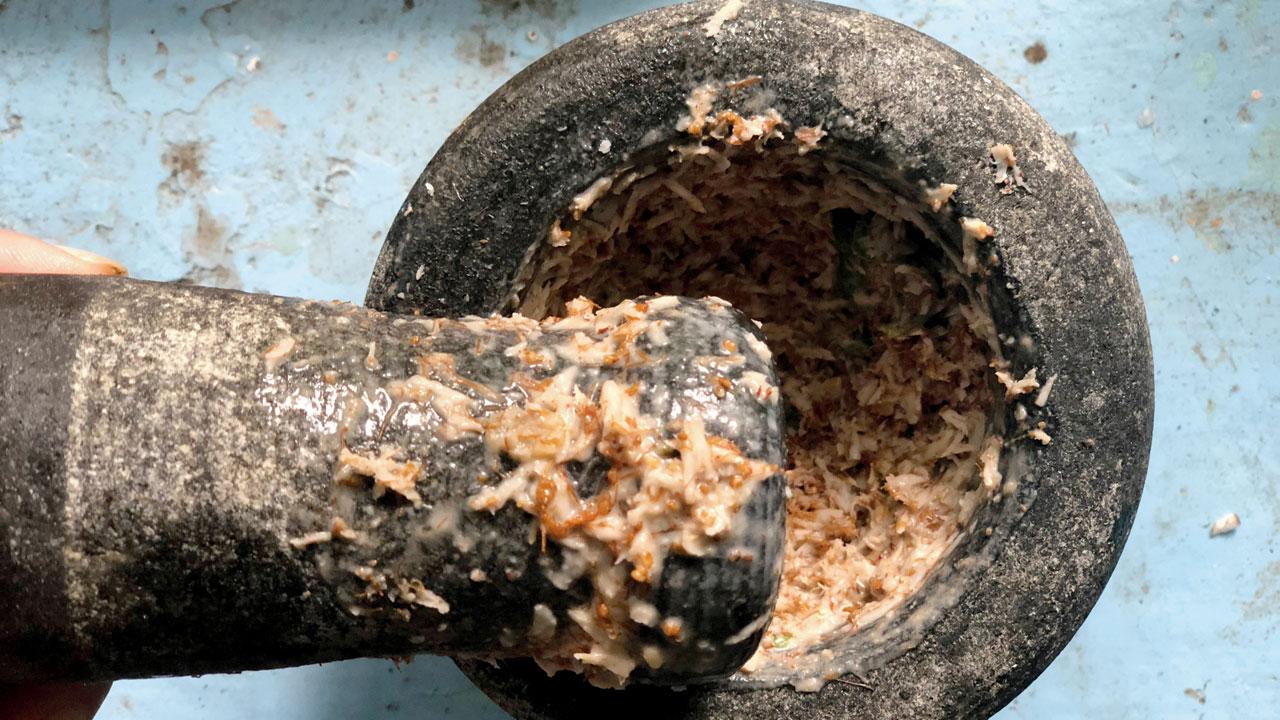Bitten by the entomophagy bug, a writer’s project at a festival will explore issues around sustainability and the socio-cultural aspects of eating insects in India

Representation pic
Bengaluru-based food, culture and sustainability writer Tansha Vohra remembers the first time she ate an insect. This was in 2018 when after a two-week permaculture design course in Goa aimed to conceive an ecosystem of regenerative ways to grow food, she began working at permaculture designer and grower Peter Fernandes’s garden. One day while in the garden, she recalls being vexed by ant bites. Nearby stood a cacao tree whose fruit she and her friends had been eyeing and on it crawled the same weaver ants that had administered the bites. “The conversation shifted to ‘why don’t we catch and eat them?’ Vohra tells us over a video call. The evening ended with her braving many more bites to harvest and freeze two ant nests. Over the course of the next two months, she made chutneys with ants, dipped them in chocolate, and used them to add sourness to various items, the formic acid in their abdomens lending the sharp flavour. It was also around this time that she started thinking about a research endeavour which ultimately took the shape of The Boochi Project—the title using the Kannada word used to describe crawly things to children. The project will, as part of the Serendipity Arts Festival’s Food Lab this year, explore how entomophagy or insect-eating might play a role in food systems of the future.
ADVERTISEMENT

Freezing them and then collecting the insects the formic acid in the ants’ abdomens lending the sharp flavour
By the time Vohra applied for the three-month Serendipity Arts Residency, which started in mid-August, she had already written for publications on the weaver ant and the locust—the latter inspired by a dystopian locust-based menu a friend had designed around the time locust attacks were reported in Rajasthan in 2020. Her research on the matter, she says, brought her to a book titled, The Diet of John the Baptist, which revealed that the preacher liked to snack regularly on locusts dipped in wild honey.
Her reading also led her to a 2013 UN report on edible insects, sustainability and the future of food. The document, says Vohra, projects that by the year 2050, there will be nine billion people on the planet and not enough land to grow food to feed them, a fact exacerbated by a monocultural agricultural structure that doesn’t encourage diversity. “Insects have always been a part of the human diet,” she asserts, citing the example of a recent excavation of 1.5 million-year-old bone tools in South Africa that were used to harvest termites from termite mounds. “Even today, over two billion people eat insects and not as some last resort ingredient. Insects don’t require large amounts of land the way crops like wheat or rice do. They can be reared in smaller, vertical settings. A lot of them can be fed materials that are by-products of our own waste, like kitchen, food manufacturing or processing waste,” she explains. Insects also have a huge ability to convert their food into protein, she points out, and are hence, a protein-dense resource. “[So, in the process of] spending billions of dollars every year on killing insects that are considered pests, we are basically eliminating a food source.”

Harvesting nests
Vohra’s research also laid bare the social, cultural and economic side to entomophagy in India. “Communities in our country who eat insects are in some way or form marginalised,” says Vohra. “They are typically tribal communities or those living on the edge of society. It also started emerging that this has a lot to do with the geography of the country and how isolated some places are. At the same time, it involves the caste system and a notion, perpetuated by the upper caste, that Indian food is pure vegetarian, and communities that don’t adhere to these [standards] have food traditions that are barbaric or savage.”

Vohra has made tart chutneys out of weaver ants
Vohra explains how she broke her project down into three parts, the first of which involved documenting recipes from around the country that involve insects and then using those recipes to decode information about habitats, seasonality and marketability of insects along with harvesting practices. Presently at the recipe collecting stage as she works with four insects—the weaver ant, the silkworm, the giant hornet and the carpenter worm—Vohra is also using the expertise of her research consultant Dr Lobeno Mozhui who did her PhD on insect-eating practices in Nagaland and who has travelled to markets in Kohima to find, cook and document insect recipes for the project. “I also started fermenting things and over the last two years have been thinking about what insects would look like in my kitchen in the future and putting my own creativity to use,” she says, speaking of the garum, a fermented fish sauce used as a condiment in the cuisines of Phoenicia, ancient Greece, Rome, Carthage and later Byzantium, using the same concept to make an amino protein sauce with ants as a base. The third aspect involves the digital archiving of the project and conversations—being held on the festival’s Instagram account through October—with a number of experts to understand how their respective fields tie into insect-eating. Among these are representatives from the Bengaluru-based Ashoka Trust For Research In Ecology And The Environment that will bring in the scientific aspect, and which, she informs, has researched and documented over 250 edible insects just in the Northeast; Naga anthropologist and author Dr Dolly Kikon, a senior lecturer at the School of Social and Political Sciences at Melbourne University who has explored the role of caste in food identities and how they have been used to ‘other’ communities; and Mumbai-based Assamese home chef Gitika Saikia, to explore the role played by people in the culinary space in changing perceptions towards insect-eating.
 Subscribe today by clicking the link and stay updated with the latest news!" Click here!
Subscribe today by clicking the link and stay updated with the latest news!" Click here!







